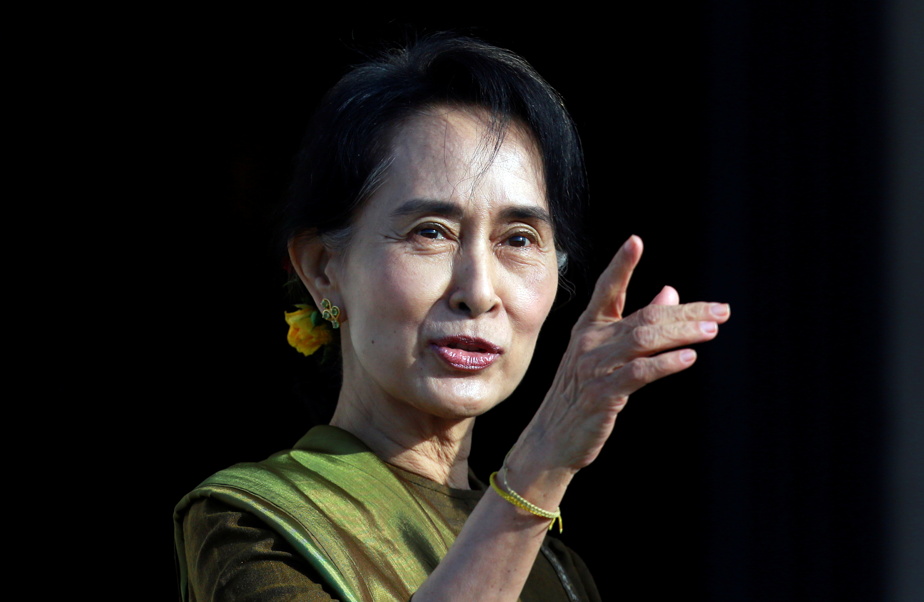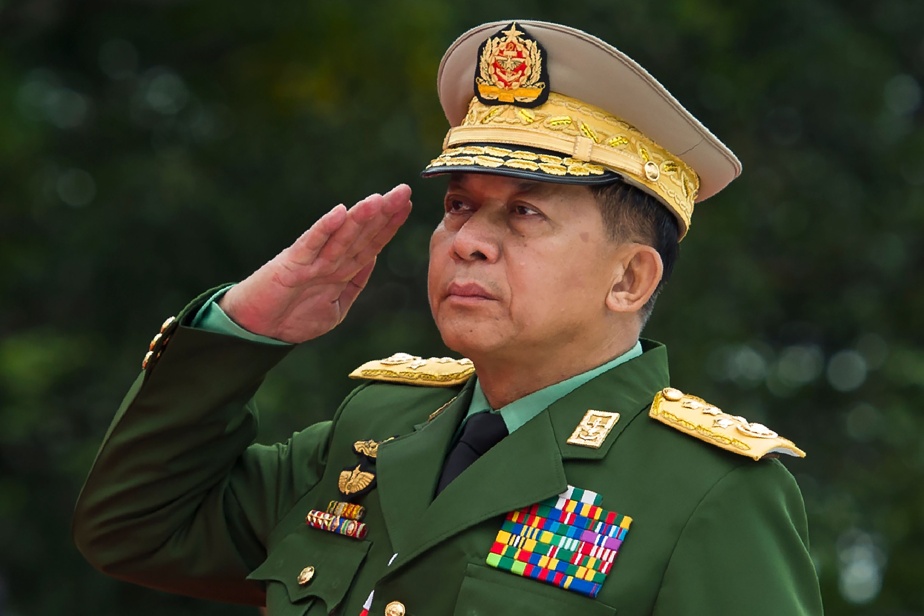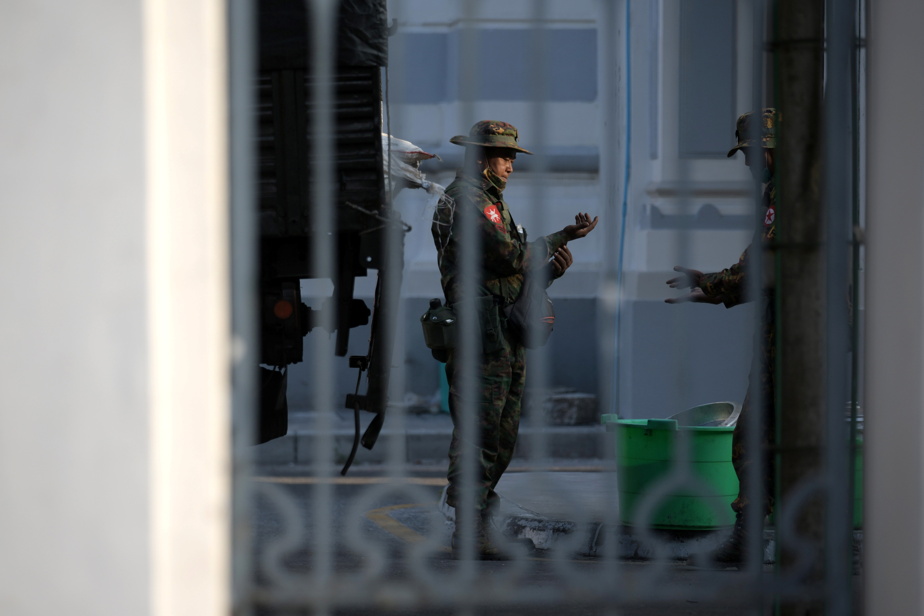(Yangon) The powerful army carried out a coup in Myanmar on Monday, in which it arrested the de facto head of the civilian government, Aung San Suu Kyi, declared a year-long state of emergency and appointed her generals to key positions.
The soldiers said in an advertisement on their TV channel “The Name” that this coup, which was immediately condemned by several foreign capitals, was necessary to preserve the “stability” of the country.
They accuse the election commission of failing to address the “massive abuses” that occurred, they said, during the legislative elections in November, which were overwhelmingly won by Aung San Suu Kyi’s party, the National League for Democracy, in power since the 2015 elections.
Early Monday morning, Aung San Suu Kyi and President Win Myint were arrested.
“We heard that they are being held in Naypyidaw,” Myo Nyunt, a spokesman for the National League for Democracy, told AFP.
He said that a number of other officials were also arrested.

Photo by Catalan McNaughton, Reuters Archives
Aung San Suu Kyi
Agence France-Presse journalists reported that the military subsequently seized Yangon, the country’s economic capital, and prevented soldiers from reaching its international airport.
The specialist NGO Netblocks noted that communications, laptops, and the Internet are seriously disrupted.
The United States and Australia responded quickly, calling for the immediate release of the leadership of the National League for Democracy and the Restoration of Democracy.
The United States opposes any attempt to alter the results of the recent elections […] White House spokeswoman Jane Psaki warned in a statement.
“We call on the military to respect the rule of law, resolve disputes through legal mechanisms, and immediately release all civilian leaders and other people illegally detained,” Australian Foreign Minister Maris Payne said.
For his part, United Nations Secretary-General Antonio Guterres condemned the arrest of Aung San Suu Kyi. These developments are a major blow to Burma’s democratic reforms.
A diplomat told AFP, speaking on condition of anonymity, that the long-scheduled UN Security Council meeting on Burma could be urgent and could be brought forward earlier this week due to recent developments.
The coup comes at a time when the parliament resulting from the recent legislative elections was scheduled to start its first session on Monday.
Burma emerged only 10 years ago from a military regime that had been in power for nearly half a century. The last two abnormal coups since the country’s independence in 1948 date back to 1962 and 1988.
Scam “millions”
Several weeks ago, the army denounced more than ten million cases of fraud during the legislative elections in November.
They demanded that the government-led election commission publish a voter list for verification – which the commission failed to do.
Concerns increased when Army Chief General Min Aung Hling – arguably the most powerful man in the country – said that the constitution could be “repealed” under certain circumstances.

PHOTO YE AUNG THU, ARCHIVES AFP
Burmese army commander, General Min Aung Hlaing
According to the army statement, Min Aung Hlaing is now focusing on “legislative, administrative and judicial” powers, while another general, Myint Sui, has been appointed as interim president, a largely honorary position.
” Complicated Relationship ”
Aung San Suu Kyi’s party, which has come under heavy criticism internationally for its management of the Rohingya Muslim crisis (hundreds of thousands of them fled in 2017 due to army abuses and sought refuge in neighboring Bangladesh) but still loved by the majority of the population, won a landslide victory in November.
This was the second general election since 2011, when the military council was dissolved.
In 2015, the National League for Democracy gained a large majority. But it has been forced into a careful sharing of power with the military, which controls three key ministries (interior, defense, and borders).
“The relationship between the government and the military was complex,” Herve Limahue, a specialist at the Lowe Institute in Australia, told AFP. “This hybrid regime, which was neither entirely authoritarian nor fully democratic, collapsed under the weight of its contradictions.”
The country has made “efforts over the past ten years to speed up reforms.” […] Min Zhao, of the Burmese Institute for Peace and Security, points out that it is a terrible setback for the democratic transition.
Long-time exile in England, Aung San Suu Kyi, now 75, returned to Burma in 1988, becoming the opposition figure in the face of a military dictatorship.
She spent 15 years under house arrest before the military released her in 2010.

“Extreme twitteraholic. Passionate travel nerd. Hardcore zombie trailblazer. Web fanatic. Evil bacon geek.”

